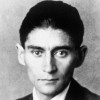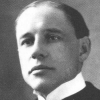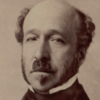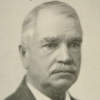To found the reward for virtuous actions on the approval of others is to choose too uncertain and shaky a foundation. Especially in an age as corrupt and ignorant as this, the good opinion of the people is a dishonor. Whom can you trust to see what is praiseworthy?
[De fonder la recompence des actions vertueuses, sur l’approbation d’autruy, c’est prendre un trop incertain et trouble fondement, signamment en un siecle corrompu et ignorant, comme cettuy cy la bonne estime du peuple est injurieuse. A qui vous fiez vous, de veoir ce qui est louable?]Michel de Montaigne (1533-1592) French essayist
Essays, Book 3, ch. 2 “Of Repentence [Du Repentir]” (1586) (3.2) (1595) [tr. Frame (1943)]
(Source)
This essay first appeared in the 1588 ed. The second sentence/phrase (on the age being so corrupt) and following were added for the 1595 ed.
(Source (French)). Alternate translations:
To ground the recompence of vertuous actions, upon the approbation of others, is to undertake a most uncertaine or troubled foundation, namely in an age so corrupt and times so ignorant, as this is: the vulgar peoples good opinion is injurious. Whom trust you in seeing what is commendable?
[tr. Florio (1603)]
To ground the Recompence of virtuous Actions upon the Approbation of others, is too uncertain and unsafe a Foundation; especially in so corrupt and ignorant an Age as this, the good Opinion of the Vulgar is injurious. Upon whom do you relie to shew you what is recommendable?
[tr. Cotton (1686)]
To ground the recompense of virtuous actions upon the approbation of others is too uncertain and unsafe a foundation, especially in so corrupt and ignorant an age as this, wherein the good opinion of the vulgar is injurious: upon whom do you rely to show you what is recommendable?
[tr. Cotton/Hazlitt (1877)]
To base the reward of virtuous actions on the approbation of others is to choose a too uncertain and obscure foundation. Especially in a corrupt and ignorant age like this, the good opinion of the vulgar is offensive; to whom do you trust to perceive what is praiseworthy?
[tr. Ives (1925)]
Basing the recompense of virtuous deeds on another’s approbation is to accept too uncertain and confused a foundation -- especially since in a corrupt and ignorant period like our own to be in good esteem with the masses is an insult: whom would you trust to recognize what was worthy of praise!
[tr. Screech (1987)]
Quotations about:
ignorance
Note not all quotations have been tagged, so Search may find additional quotes on this topic.
CLAUDIO: O, what men dare do! What men may do!
What men daily do, not knowing what they do!William Shakespeare (1564-1616) English dramatist and poet
Much Ado About Nothing, Act 4, sc. 1, l. 19ff (4.1.19-20) (1598)
(Source)
In truth, poverty is an anomaly to rich people. It is very difficult to make out why people who want dinner do not ring the bell.
Walter Bagehot (1826-1877) British businessman, essayist, journalist
“The Waverley Novels,” National Review (1858-04)
(Source)
A review of Sir Walter Scott's very popular and lengthy book series of that name, which includes his (today) most famous, Ivanhoe.
Science doesn’t supply happiness; but neither does its lack. The same can be said of social utopias: they aren’t created by science, but neither does lack of science provide them. Science has cast up dangerous and cruel knowledge, which has been exploited for warfare and dictatorial power; but so have cultures so little gifted with scientists that they either make do with imported weapons or rely on clubs, axes, and daggers. Scientific information about our mistakes — for instance, that deforestation invites mud slides and deserts, that overfishing depletes fish stocks — doesn’t guarantee we will avoid such mistakes or correct them, but that is owing to failure to heed what science uncovers.
Jane Jacobs (1916-2006) American-Canadian journalist, author, urban theorist, activist
Dark Age Ahead, ch. 3 “Science Abandoned” (2004)
(Source)
They’re talking about things of which they don’t have the slightest understanding, anyway. It’s only because of their stupidity that they’re able to be so sure of themselves.
Franz Kafka (1883-1924) Czech-Austrian Jewish writer
The Trial, ch. 1 (1925) [tr. Wyllie (2003)]
(Source)
The protagonist Josef K., musing over the minor functionaries who have arrested him on unknown charges.
Life is like arriving late for a movie, having to figure out what was going on without bothering everybody with a lot of questions, and then being unexpectedly called away before you find out how it ends.
Joseph Campbell (1904-1987) American writer, professor of literature
(Attributed)
Knowledge is not happiness, and science
But an exchange of ignorance for that
Which is another kind of ignorance.George Gordon, Lord Byron (1788-1824) English poet
“Manfred,” Act 2, sc. 4 [First Destiny] (1817)
(Source)
Sorrow is knowledge: they who know the most
Must mourn the deepest o’er the fatal truth,
The Tree of Knowledge is not that of Life.George Gordon, Lord Byron (1788-1824) English poet
“Manfred,” Act 1, sc. 1 [Manfred] (1817)
(Source)
Nothing in education is so astonishing as the amount of ignorance it accumulates in the form of inert facts.
Henry Adams (1838-1918) American journalist, historian, academic, novelist
The Education of Henry Adams, ch. 25 (1907)
(Source)
Why is it that we remember with effort but forget without effort? That we learn with effort but stay ignorant without effort? That we are active with effort, and lazy without effort?
[Quid est enim, quod cum labore meminimus, sine labore obliuiscimur; cum labore discimus, sine labore nescimus; cum labore strenui, sine labore inertes sumus?]Augustine of Hippo (354-430) Christian church father, philosopher, saint [b. Aurelius Augustinus]
City of God [De Civitate Dei], Book 22, ch. 22 (22.22) (AD 412-416) [tr. Green (Loeb) (1972)]
(Source)
(Source (Latin)). Alternate translations:
What is our labour to remember things, our labour to learn, and our ignorance without this labour? our agility got by toil, and our dullness if we neglect it?
[tr. Healey (1610)]
For why is it that we remember with difficulty, and without difficulty forget? learn with difficulty, and without difficulty remain ignorant? are diligent with difficulty, and without difficulty are indolent?
[tr. Dods (1871)]
How difficult it is to remember, how easy to forget; how hard to learn and how easy to be ignorant; how difficult to make an effort and how easy to be lazy.
[tr. Walsh/Honan (1954)]
How is it that what we learn with toil we forget with ease? that it is hard to learn, but easy to be in ignorance? That activity goes against the grain, while indolence is second nature?
[tr. Bettenson (1972)]
Why is it that we remember with such difficulty, but forget so easily? Why is it that we learn with such difficulty, yet so easily remain ignorant? Why is it that we are vigorous with such difficulty, yet so easily inert?
[tr. Dyson (1998)]
Yes, poor doggie, you are very stupid, very stupid indeed, compared with us clever men, who understand all about politics and philosophy, and who know everything in short, except what we are, and where we came from, and whither we are going, and what everything outside this tiny world and most things in it are.
Jerome K. Jerome (1859-1927) English writer, humorist [Jerome Klapka Jerome]
“On Cats and Dogs,” The Idle Thoughts of an Idle Fellow (1889)
(Source)
This life of ours — if a life so full of such great ills can properly be called a life — bears witness to the fact that, from its very start, the race of mortal men has been a race condemned. Think, first, of that dreadful abyss of ignorance from which all error flows and so engulfs the sons of Adam in a darksome pool that no one can escape without the toll of toils and tears and fears. Then, take our very love for all those things that prove so vain and poisonous and breed so many heartaches, troubles, griefs, and fears; such insane joys in discord, strife, and war; such wrath and plots of enemies, deceivers, sycophants; such fraud and theft and robbery; such perfidy and pride, envy and ambition, homicide and murder, cruelty and savagery, lawlessness and lust; all the shameless passions of the impure — fornication and adultery, incest and unnatural sins, rape and countless other uncleannesses too nasty to be mentioned; the sins against religion — sacrilege and heresy, blasphemy and perjury; the iniquities against our neighbors — calumnies and cheating, lies and false witness, violence to persons and property; the injustices of the courts and the innumerable other miseries and maladies that fill the world, yet escape attention.
It is true that it is wicked men who do such things, but the source of all such sins is that radical canker in the mind and will that is innate in every son of Adam. For, our infancy proves with what ignorance of the truth man enters upon life, and adolescence makes clear to all the world how full we are of folly and concupiscence. In fact, if anyone were left to live as he pleased and to do what he desired, he would go through practically the whole gamut of lawlessnesses and lust — those which I have just listed and, perhaps, others that I refrained from mentioning.[Nam quod ad primam originem pertinet, omnem mortalium progeniem fuisse damnatam, haec ipsa uita, si uita dicenda est, tot et tantis malis plena testatur. Quid enim aliud indicat horrenda quaedam profunditas ignorantiae, ex qua omnis error existit, qui omnes filios Adam tenebroso quodam sinu suscepit, ut homo ab illo liberari sine labore dolore timore non possit? Quid amor ipse tot rerum uanarum atque noxiarum et ex hoc mordaces curae, perturbationes, maerores, formidines, insana gaudia, discordiae, lites, bella, insidiae, iracundiae, inimicitiae, fallacia, adulatio, fraus, furtum, rapina, perfidia, superbia, ambitio, inuidentia, homicidia, parricidia, crudelitas, saeuitia, nequitia, luxuria, petulantia, inpudentia, inpudicitia, fornicationes, adulteria, incesta et contra naturam utriusque sexus tot stupra atque inmunditiae, quas turpe est etiam dicere, sacrilegia, haereses, blasphemiae, periuria, oppressiones innocentium, calumniae, circumuentiones, praeuaricationes, falsa testimonia, iniqua iudicia, uiolentiae, latrocinia et quidquid talium malorum in mentem non uenit et tamen de uita ista hominum non recedit? Verum haec hominum sunt malorum, ab illa tamen erroris et peruersi amoris radice uenientia, cum qua omnis filius Adam nascitur. Nam quis ignorat cum quanta ignorantia ueritatis, quae iam in infantibus manifesta est, et cum quanta abundantia uanae cupiditatis, quae in pueris incipit apparere, homo ueniat in hanc uitam, ita ut, si dimittatur uiuere ut uelit et facere quidquid uelit, in haec facinora et flagitia, quae commemoraui et quae commemorare non potui, uel cuncta uel multa perueniat?]
Augustine of Hippo (354-430) Christian church father, philosopher, saint [b. Aurelius Augustinus]
City of God [De Civitate Dei], Book 22, ch. 22 (22.22) (AD 412-416) [tr. Walsh/Honan (1954)]
(Source)
(Source (Latin)). Alternate translations:
Concerning man’s first origin, our present life (if such a miserable estate can be called a life) does sufficiently prove that all his children were condemned in him. What else does that horrid gulf of ignorance confirm, whence all error has birth, and wherein all the sons of Adam are so deeply drenched, that none can be freed without toil, fear, and sorrow? What else does our love of vanities affirm, whence there arises such a tempest of cares, sorrows, repinings, fears, mad exultations, discords, altercations, wars, treasons, furies, hates, deceits, flatteries, thefts, rapines, perjuries, pride, ambition, envy, murder, parricide, cruelty, villainy, luxury, impudence, unchastity, fornications, adulteries, incests, several sorts of sins against nature (filthy even to be named), sacrilege, heresy, blasphemy, oppression, calumnies, circumventions, deceits, false witnesses, false judgments, violence, robberies, and suchlike out of my remembrance to reckon, but not excluded from the life of man? All these evils are belonging to man, and arise out of the root of that error and perverse affection which every son of Adam brings into the world with him. For who does not know in what a mist of ignorance (as we see in infants) and with what a crew of vain desires (as we see in boys) all mankind enters this world, so that if man were left unto his own election, he would fall into most of the aforesaid mischiefs?
[tr. Healey (1610)]
That the whole human race has been condemned in its first origin, this life itself, if life it is to be called, bears witness by the host of cruel ills with which it is filled. Is not this proved by the profound and dreadful ignorance which produces all the errors that enfold the children of Adam, and from which no man can be delivered without toil, pain, and fear? Is it not proved by his love of so many vain and hurtful things, which produces gnawing cares, disquiet, griefs, fears, wild joys, quarrels, lawsuits, wars, treasons, angers, hatreds, deceit, flattery, fraud, theft, robbery, perfidy, pride, ambition, envy, murders, parricides, cruelty, ferocity, wickedness, luxury, insolence, impudence, shamelessness, fornications, adulteries, incests, and the numberless uncleannesses and unnatural acts of both sexes, which it is shameful so much as to mention; sacrileges, heresies, blasphemies, perjuries, oppression of the innocent, calumnies, plots, falsehoods, false witnessings, unrighteous judgments, violent deeds, plunderings, and whatever similar wickedness has found its way into the lives of men, though it cannot find its way into the conception of pure minds? These are indeed the crimes of wicked men, yet they spring from that root of error and misplaced love which is born with every son of Adam. For who is there that has not observed with what profound ignorance, manifesting itself even in infancy, and with what superfluity of foolish desires, beginning to appear in boyhood, man comes into this life, so that, were he left to live as he pleased, and to do whatever he pleased, he would plunge into all, or certainly into many of those crimes and iniquities which I mentioned, and could not mention?
[tr. Dods (1871)]
This very life, if life it can be called, pregnant with so many dire evils, bears witness that from its very beginning all the progeny of mankind was damned. For what else is the meaning of the dreadful depth of ignorance, from which all error arises, which has taken to its bosom, so to speak, all the sons of Adam in its dark embrace, so that man cannot be freed from that embrace without toil, pain and fear? What is the meaning of the love of so many vain and harmful things, from which come gnawing cares, passions, griefs, fears, mad joys, discords, strifes, wars, plots, wraths, enmities, deceits, flattery, fraud, theft, robbery, perfidy, pride, ambition, envy, murder, parricide, cruelty, ferocity, vileness, riotous living, disorderly conduct, impudence, shamelessness, fornication, adultery, incest and so many outrageous and foul forms of unnatural vice in each sex which it is indecent even to mention, sacrilege, heresies, blasphemies, perjuries, oppressions of the innocent, calumnies, deceptions, duplicities, false witness, unjust verdicts, violence, brigandage and all the other evils which come not to mind, but still do not pass from this life of men? Yes, these are misdeeds of bad men, for they spring from that root of error and perverse love with which every son of Adam is born. Indeed, who does not know with what ignorance of truth, manifest already in infancy, and with what excess of vain desire, which begins to appear in childhood, man comes into this life, so that if he is allowed to live and do as he likes, he falls into all, or many, of these misdeeds and crimes which I have rehearsed, and others which I was unable to rehearse?
[tr. Green (Loeb) (1972)]
As for that first origin of mankind, this present life of ours (if a state full of so much grievous misery can be called a life) is evidence that all the mortal descendants of the first man came under condemnation. Such is the clear evidence of that terrifying abyss of ignorance, as it may be called, which is the source of all error, in whose gloomy depths all the sons of Adam are engulfed, so that man cannot be rescued from it without toil, sorrow and fear. What else is the message of all the evils of humanity? The love of futile and harmful satisfactions, with its results: carking anxieties, agitations of mind, disappointments, fears, frenzied joys, quarrels, disputes, wars, treacheries, hatreds, enmities, deceits, flattery, fraud, theft, rapine, perfidy, pride, ambition, envy, murder, parricide, cruelty, savagery, villainy, lust, promiscuity, indecency, unchastity, fornication, adultery, incest, unnatural vice in men and women (disgusting acts too filthy to be named), sacrilege, collusion, false witness, unjust judgement, violence, robbery, and all other such evils which do not immediately come to mind, although they never cease to beset this life of man -- all these evils belong to man in his wickedness, and they all spring from that root of error and perverted affection which every son of Adam brings with him at his birth. For who is not aware of the vast ignorance of the truth (which is abundantly seen in infancy) and the wealth of futile desires (which begins to be obvious in boyhood) which accompanies a man on his entrance into this world, so that if man were left to live as he chose and act as he pleased he would fall into all, or most, of those crimes and sins which I have mentioned -- and others which I was not able to mention.
[tr. Bettenson (1972)]
This life itself, if it is to be called a life, attests, by the many great evils with which it is filled, that the whole mortal progeny of the first man stands condemned. What could show this more clearly than that dreadful and profound ignorance from which springs all the error which imprisons the sons of Adam in a dark place from which no man can be delivered without toil, pain and fear? Is this not proved by his love of so many vain and harmful things, from which come gnawing cares, disturbances, griefs, fears, insane joys, discords, litigation, wars, treasons, angers, hatreds, falsehood, flattery, fraud, theft, rapine, perfidy, pride, ambition, envy, homicides, parricides, cruelty, ferocity, wickedness, luxury, insolence, immodesty, unchastity, fornications, adulteries, incests, and so many other impure and unnatural acts of both sexes of which it is shameful even to speak; sacrileges, heresies, blasphemies, perjuries, oppression of the innocent, slanders, plots, prevarications, false witness, unrighteous judgments, acts of violence, robberies, and other such evils which do not immediately come to mind, but which are never far away from men in this life? Truly, these are the crimes of wicked men; yet they come forth from that root of error and perverse love which is born with every son of Adam. For who does not know how great is our ignorance of the truth, manifesting itself even in infancy? Who does not know with what an abundance of vain desires, beginning to appear in boyhood, a man comes into this life? So true is this that, if a man were left to live as he wished and do whatever he liked, he would fall into all, or certainly into many, of those crimes and iniquities which I mentioned and could not mention.
[tr. Dyson (1998)]
We’ve tried ignorance for a thousand years. It’s time we try education.
Joycelyn Elders (b. 1933) American pediatrician, public health administrator, academic
Penn & Teller: Bullshit!, s. 4, ep. 6 “Abstinence” (2006-06-05)
(Source)
On sex education for kids.
Can’t you understand that if you take a law like evolution and make it a crime to teach it in public schools, tomorrow you could make it a crime to teach it in private schools, and tomorrow you may make it a crime to read about it? And soon you may ban books and newspapers. And then you may turn Catholic against Protestant, and Protestant against Protestant, and try to foist your own religion upon the mind of man. If you can do one you can do the other, because fanaticism and ignorance is forever busy and needs feeding.
Nedrick Young (1914-1968) American screenwriter and actor [pseud. Nathan E. Douglas]
Inherit the Wind, film (1960) [with Harold Jacob Smith]
(Source)
The original 1951 play was written by Jerome Lawrence and Robert E. Lee, but does not include this line, delivered in the film by Spencer Tracy. Young and Smith share the screenwriting credits.
My dear brothers, when you hear the progress of enlightenment extolled, never forget that the devil’s cleverest trick is to persuade you that he does not exist!
[Mes chers frères, n’oubliez jamais, quand vous entendrez vanter le progrès des lumières, que la plus belle des ruses du diable est de vous persuader qu’il n’existe pas!]
Charles Baudelaire (1821-1867) French poet, essayist, art critic
Le Spleen de Paris (Petits Poèmes en Prose), No. 29 “The Generous Gambler [Le Joueur généreux]” (1869) [tr. Kaplan (1989)]
(Source)
A warning by a Parisian preacher, as reported by the Devil himself. Used in movie The Usual Suspects (1995) as "The greatest trick the Devil ever pulled was convincing the world he didn't exist."
(Source (French)). Alternate translations:
My dear brethren, never forget, when you hear the progress of wisdom vaunted, that the cleverest ruse of the Devil is to persuade you he does not exist!
[tr. Shipley (<1919) "The Generous Player"]
My dear brethren, never forget, when you hear boasts about the progress of enlightenment, that the finest ruse of the devil is to persuade you that he does not exist!
[tr. Hamburger (1946) "The Generous Gamester"]
My dear brothers, never forget when you hear people boast of our progress in enlightenment, that one of the devil's best ruses is to persuade you that he does not exist!
[tr. Varèse (1970)]
The Devil's subtlest ruse is to convince us that he doesn't exist.
[tr. McGowan (1993)]
Dear brethren, never forget that the finest of all the devil's tricks is to persuade you that he doesn't exist.
[tr. Lerner (2003)]
My dear brethren, do not ever forget, when you hear the progress of lights praised, that the loveliest trick of the Devil is to persuade you that he does not exist!
[Source]
It is almost as difficult to make a man unlearn his errors as his knowledge. Mal-information is more hopeless than non-information; for error is always more busy than ignorance. Ignorance is a blank sheet, on which we may write; but error is a scribbled one, on which we must first erase. Ignorance is contented to stand still with her back to the truth; but error is more presumptuous, and proceeds in the same direction. Ignorance has no light, but error follows a false one. The consequence is, that error, when she retraces her footsteps, has further to go, before she can arrive at the truth, than ignorance.
Charles Caleb "C. C." Colton (1780-1832) English cleric, writer, aphorist
Lacon: Or, Many Things in Few Words, Vol. 1, § 1 (1820)
(Source)
All you need in this life is ignorance and confidence; then success is sure.
Mark Twain (1835-1910) American writer [pseud. of Samuel Clemens]
Letter to Mrs. Foote (1887-12-02)
(Source)
First reprinted, upon the letter's rediscovery, in The Los Angeles Times (1930-03-16). A facsimile of the discovered letter (with the above punctuation) can be found in B. DeCasseres, When Huck Finn Went Highbrow (1934).
For more discussion about this quotation's origin: All You Need In This Life Is Ignorance and Confidence; Then Success Is Sure – Quote Investigator®.
That there should one Man die ignorant who had capacity for Knowledge, this I call a tragedy.
Thomas Carlyle (1795-1881) Scottish essayist and historian
Sartor Resartus, Book 3, ch. 4 (1831)
(Source)
What had men thought? What had men believed? How did they come by those thoughts and beliefs? How had men learned to govern themselves? Were the processes the same everywhere?
Did man build cities because of an inner drive, like that of a beaver to build dams? How much of what we do is free will, and how much is programmed in our genes? Why is each people so narrow that it believes that it, and it alone, has all the answers? In religion, is there but one road to salvation? Or are there many, all equally good, all going in the same general direction?
I have read my books by many lights, hoarding their beauty, their wit or wisdom against the dark days when I would have no book, nor a place to read.
I have known hunger of the belly kind many times over, but I have known a worse hunger: the need to know and to learn.
Louis L'Amour (1908-1988) American writer
Education of a Wandering Man: A Memoir, ch. 11 (1989)
(Source)
DRUMMOND: As long as the prerequisite for that shining paradise is ignorance, bigotry and hate, I say to hell with it.
Nedrick Young (1914-1968) American screenwriter and actor [pseud. Nathan E. Douglas]
Inherit the Wind, film (1960) [with Harold Jacob Smith]
(Source)
The original 1951 play was written by Jerome Lawrence and Robert E. Lee, but does not include this line, delivered in the film by Spencer Tracy. Young and Smith share the screenwriting credits.
You will hear things like, “Science doesn’t know everything.” Well, of course science doesn’t know everything. But because science doesn’t know everything, that doesn’t mean science knows nothing. Science knows enough for us to be watched by a few million people now on television, for these lights to be working, for quite extraordinary miracles to have taken place in terms of the harnessing of the physical world and our dim approaches towards understanding it.
Man comes to each age of his life a novice.
[L’homme arrive novice à chaque âge de la vie.]
Nicolas Chamfort (1741-1794) French writer, epigrammist (b. Nicolas-Sébastien Roch)
Products of Perfected Civilization [Produits de la Civilisation Perfectionnée], Part 2 Characters and Anecdotes [Caractères et Anecdotes], ch. 12 (1795) [tr. Merwin (1969)]
(Source)
(Source (French)). Alternate translations:
Man arrives a novice at every age of life.
[Source (1878)]
Man reaches each stage in his life as a novice.
[tr. Hutchinson (1902), "The Cynic's Breviary"]
A man begins every stage of his life as a novice.
[tr. Parmée, ¶412 (2003)]
Learn a little of anything, and you’re ready to proselytize.
Mignon McLaughlin (1913-1983) American journalist and author
The Neurotic’s Notebook, ch. 7 (1963)
(Source)
Always remember: If you’re alone in the kitchen and you drop the lamb, you can always just pick it up. Who’s going to know?
Julia Child (1912-2004) American chef and writer
“What I’ve Learned: Julia Child,” interview by Mike Sager, Esquire (2001-06)
(Source)
Reprinted in Brendan Vaughan, Esquire: The Meaning of Life (2004).
This quotation, and variations on it, are (in)famous regarding Child. The earliest version can be found in her public TV show, The French Chef, 1x22 "The Potato Show" (1963-06-29). In that filmed-live episode, a potato pancake flip ends poorly, spilling onto other parts of the range. Child scoops up the spilled bits and puts them back into the pan:
Well, that didn't go very well. See, when I flipped it I didn't have the courage to do it the way I should have. But you can always pick it up, and if you are alone in the kitchen, who is going to see?
In an era before online video, and on such an initially obscure show, variations appeared almost immediately, e.g., in Blake Hunter, "A Tasty Dish," "Educational TV" column, Film News (1964-10), which gave the quote as happening when a potato pancake spilled on a sideboard:
If this happens, just scoop it back into the pan. Remember, you are alone in the kitchen, and nobody can see you.
The story grew in the telling, and eventually was told as her dropping a chicken. Many folk incorrectly recall this as being one of the gags in the (hilarious) 1978 Saturday Night Live skit starring Dan Aykroyd as Child.
Child often pointed to the incident as involving a potato pancake, not a chicken, though as noted, her lamb comment still stands as another hypothetical.
Fear tends to come from ignorance. Once I knew what the problem was, it was just a problem, nothing to fear.
Patrick Rothfuss (b. 1973) American author
The Name of the Wind, ch. 32 “Coppers, Cobblers and Crowds” (2007)
(Source)
O foolish creatures,
what great ignorance besets you![Oh creature sciocche,
quanta ignoranza è quella che v’offende!]Dante Alighieri (1265-1321) Italian poet
The Divine Comedy [Divina Commedia], Book 1 “Inferno,” Canto 7, l. 70ff (7.70-71) [Virgil] (1309) [tr. Hollander/Hollander (2007)]
(Source)
Virgil lambasting humanity for not understanding the God-ordained role of Fortune. (Source (Italian)). Alternate translations:
O Mortals without sense,
How great's the Ignorance that you possess!
[tr. Rogers (1782)]
O beings blind! what ignorance
Besets you?
[tr. Cary (1814)]
Ah! sottish creature-tribe!
What scandals doth your ignorance beteem!
[tr. Dayman (1843)]
O foolish creatures, how great is this ignorance that falls upon ye!
[tr. Carlyle (1849)]
Oh! foolish creature! to be blind
What ignorance is that attacks your mind?
[tr. Bannerman (1850)]
Oh, creatures weak and blind,
How ye are hinder'd by your ignorance!
[tr. Johnston (1867)]
O creatures imbecile,
What ignorance is this which doth beset you?
[tr. Longfellow (1867)]
O foolish creatures, how great ignorance is that which makes you trip!
[tr. Butler (1885)]
O creatures dull to see,
What ignorance is this that here offends!
[tr. Minchin (1885)]
O creatures foolish, how great is that ignorance that harms you!
[tr. Norton (1892)]
Besotted race, how deep the ignorance that harasseth you!
[tr. Sullivan (1893)]
O ye insipid creatures.
How great the ignorance which doth oppress
you. [tr. Griffith (1908)]
O foolish creatures, what ignorance is this that besets you!
[tr. Sinclair (1939)]
How heavy the ignorance,
O foolish creatures, that on you is laid.
[tr. Binyon (1943)]
Ah, witless world! Behold the grand
Folly of ignorance!
[tr. Sayers (1949)]
O credulous mankind,
is there one error that has wooed and lost you?
[tr. Ciardi (1954)]
O foolish creatures, how great is the ignorance that besets you!
[tr. Singleton (1970)]
Oh foolish race of man,
how overwhelming is your ignorance!
[tr. Musa (1971)]
O unenlightened creatures,
how deep -- the ignorance that hampers you!
[tr. Mandelbaum (1980)]
How foolish people are!
How great is the ignorance which strikes them down!
[tr. Sisson (1981)]
Foolish creatures,
How great an ignorance plagues you.
[tr. Pinsky (1994), ll. 62-63]
O foolish creatures, how great is the ignorance that injures you!
[tr. Durling (1996)]
O, blind creatures, how great is the ignorance that surrounds you!
[tr. Kline (2002)]
You idiotic creatures,
so greatly hurt by your own ignorance!
[tr. Kirkpatrick (2006)]
O men of foolish minds!
How limited you are, how ignorant!
[tr. Raffel (2010)]
Half-witted mortals, how is it you know
So little even of the ignorance
That starves you?
[tr. James (2013), ll. 66-68]
A polite man is one who listens with interest to things he knows all about, when they are told him by a person who knows nothing about them.
Charles de Morny (1811-1865) French statesman [Charles Auguste Louis Joseph de Morny, 1st Duc de Morny]
(Attributed)
Earliest reference found here (1872).
In fact ignorance of law leads to more lawsuits than knowledge of it.
[Potius ignoratio iuris litigiosa est quam scientia.]
Marcus Tullius Cicero (106-43 BC) Roman orator, statesman, philosopher
De Legibus [On the Laws], Book 1, ch. 5 (1.6) / sec. 18 [Marcus] (c. 51 BC) [tr. Zetzel (1999)]
(Source)
(Source (Latin)). Alternate translations:
It is not so much the science of law that produces litigation, as the ignorance of it.
[tr. Barham (1842), Barham/Yonge (1878)]
The litigious spirit is more often found with ignorance than with knowledge of law.
[ed. Harbottle (1906)]
For it is rather ignorance of the law than knowledge of it that leads to litigation.
[tr. Keyes (1928)]
Ignorance rather than knowledge of the law leads to litigation.
[tr. Rudd (1998)]
Profound ignorance makes a man dogmatical; he who knows nothing thinks he can teach others what he just now has learned himself.
[C’est la profonde ignorance qui inspire le ton dogmatique. Celui qui ne sait rien croit enseigner aux autres ce qu’il vient d’apprendre lui-même.]
Jean de La Bruyère (1645-1696) French essayist, moralist
The Characters [Les Caractères], ch. 5 “Of Society and Conversation [De la Société et de la Conversation],” § 76 (5.76) (1688) [tr. Van Laun (1885)]
(Source)
(Source (French)). Alternate translations:
Profound Ignorance makes a Man dogmatick. If he knows nothing, he thinks he can teach others what he is to learn himself.
[Bullord ed. (1696)]
Profound Ignorance makes a Man dogmatick; he who knows nothing, thinks he can teach others what he just now has learn'd himself.
[Curll ed. (1713)]
A dogmatic tone is generally inspired by abysmal ignorance. The man who knows nothing thinks he is informing others of something which he has that moment learnt.
[tr. Stewart (1970)]
The vices of which we are full we carefully hide from others, and we flatter ourselves with the notion that they are small and trivial; we sometimes even embrace them as virtues.
John Calvin (1509-1564) French theologian and reformer
The Institutes of Christian Religion [Institutio Christianae Religionis], Book 3, ch. 7, sec. 4 (1541) [tr. Van Andel (1952)]
(Source)
Also reprinted in an extract as The Christian Life [De Vita Hominis Christiani], or, in the case of the Van Andel translation, Golden Booklet of the True Christian Life, ch. 2, sec. 4, subsec. 2.
The vices in which we abound, we sedulously conceal from others, and flatter ourselves with the pretence that they are diminutive and trivial, and even sometimes embrace them as virtues.
[Source (1813)]
The very vices that infest us we take pains to hide from others, while we flatter ourselves with the pretense that they are slight and insignificant, and even sometimes embrace them as virtues.
[Source (1984)]
The vices with which we abound we both carefully conceal from others, and flatteringly represent to ourselves as minute and trivial, no, sometimes hug them as virtues.
[tr. Beveridge (2008)]
Ignorance is always afraid of change. It fears the unknown and sticks to its rut, however miserable it may be there. In its blindness it stumbles on anyhow.
Jawaharlal Nehru (1889-1964) Indian nationalist leader, politician, statesman, author
Glimpses of World History, Letter 82, 4 Aug 1932 (1934)
(Source)
Neither his inability to speak, who understands his subject but cannot set it forth in words, nor his ignorance, to whom substance is lacking though words abound, can merit commendation; and if I had to choose one of the two, I should prefer uneloquent good sense to loquacious folly.
[Neque infantiam eius, qui rem norit, sed eam explicare dicendo non queat, neque inscientiam illius, cui res non suppetat, verba non desint, esse laudandam; quorum si alterum sit optandum, malim equidem indisertam prudentiam quam stultitiam loquacem]
Marcus Tullius Cicero (106-43 BC) Roman orator, statesman, philosopher
De Oratore [On the Orator, On Oratory], Book 3, ch. 35 (3.35) / sec. 142 (55 BC) [tr. Watson (1860)]
(Source)
(Source (Latin)). Alternate translations:
A Knowledge of Things, without an Ability of expressing them, no more deserves the Name of Eloquence, than a Fluency of Words, join'd to an Ignorance of Things: For my part, were I to take my Choice, I should prefer good Sense, tho' uneloquent, to Nonsense, let it be ever so flowing.
[tr. Guthrie (1755)]
Neither a knowledge of things, without ability to express them, nor a fluency fo words, without ideas, be considered as deserving the name of eloquence: for my part, were I to take my choice, I should prefer good sense, though ineloquent, to nonsense, however flowing.
[Source (1808)]
Neither the ineloquence which cannot impart what it knows, nor the ignorance that is fluent without knowledge, be deemed a subject for commendation; though, if the alternative be unavoidable, I should very much prefer ineloquent information to ignorant loquacity.
[tr. Calvert (1870)]
If have to choose between the two, I would rather have sound common sense without eloquence, than folly with a fine flow of language.
[ed. Harbottle (1906)]
Neither the tongue-tied silence of the man who knows the facts but cannot explain them in language, nor the ignorance of the person who is deficient in facts but has no lack of words, is deserving of praise. And if one had to choose between them, for my part I should prefer wisdom lacking power of expression to talkative folly.
[tr. Rackham (1942)]
No praise is due to the dumbness of the person who has mastered the matter but cannot unfold it in speech, nor, conversely, to the ignorance of the one who does not have the subject matter at his command, but has no lack of words. If we must choose between these alternatives, I myself would prefer inarticulate wisdom to babbling stupidity.
[tr. May/Wisse (2001)]
As per your specific question in regard to masturbation, I think that is something that is a part of human sexuality and it’s a part of something that perhaps should be taught. But we’ve not even taught our children the very basics. And I feel that we have tried ignorance for a very long time and it’s time we try education.
Joycelyn Elders (b. 1933) American pediatrician, public health administrator, academic
Comment, United Nations AIDS conference, New York City (1 Dec 1994)
(Source)
When asked if it would be appropriate to discuss or promote masturbation as a means of getting younger people to avoid riskier forms of sexual activity. She was fired as Surgeon General for the Clinton Administration for that and earlier comments on controversial issues.
Unreason is now ascendant in the United States — in our schools, in our courts, and in each branch of the federal government. Only 28 percent of Americans believe in evolution; 68 percent believe in Satan. Ignorance in this degree, concentrated in both the head and belly of a lumbering superpower, is now a problem for the entire world.
Sam Harris (b. 1967) American author, philosopher, neuroscientist
“The Politics of Ignorance,” Huffington Post (2 Aug 2005)
(Source)
I cannot guess why it is so, but those who know the least speak the most.
[E non so io indovinare donde ciò proceda, che chi meno sa più ragioni.]
Giovanni della Casa (1503-1556) Florentine poet, author, diplomat, bishop
Galateo: Or, A Treatise on Politeness and Delicacy of Manners [Il Galateo overo de’ costumi], ch. 24 (1558) [tr. Einsenbichler/Bartlett (1986)]
(Source)
(Source (Italian)). Alternate translations:
Nor can I guess at the cause, (though it is certainly fact) why he that knows the least, should always talk the most.
[tr. Graves (1774)]
I cannot divine how it happens that the man who knows the least is the most argumentative.
[Source]
If you forget the victims
of yesterday’s sorrow
you could become
a victim of tomorrow.Yevgeny Yevtushenko (1933-2017) Russian poet, writer, film director, academic [Евге́ний Евтуше́нко, Evgenij Evtušenko]
“Fuku,” Almost at the End (1987) [tr. Bouis]
(Source)
First printed, in Russian, in Novyi mir, No. 9 (1985). In "Yevtushenko: A Soviet Poet Turns to Movie Making," New York Times (2 Feb 1986), Yevtushenko translates it himself as:
He who forgets the victims of yesterday, may become the victim of tomorrow.
I know that I suffer and this is no small pain:
Not to know, now that brings some pleasure to
The troubled — ignorance is an advantage amid grief.[φρονῶ δ’ ὃ πάσχω, καὶ τόδ’ οὐ σμικρὸν κακόν·
τὸ μὴ εἰδέναι γὰρ ἡδονὴν ἔχει τινὰ
νοσοῦντα, κέρδος δ’ ἐν κακοῖς ἀγνωσία.]Euripides (485?-406? BC) Greek tragic dramatist
Antiope [Αντιοπη], frag. 205 (Kannicht) (c. 410 BC) [tr. @sentantiq (2015)]
(Source)
A source for the phrase, "Ignorance is bliss." (Source (Greek); see also TGF frag 204). Alternate translation:
I understand what I endure, and this
Is no small evil; for to the diseas'd
There is a kind of pleasure in not knowing
Their malady; such ignorance is gain
To those who labor under grievous woes.
[tr. Wodhall (1809); Barnes 23, Musgrave 24]
I understand what I suffer, and this is not a small evil:
for not to know that one is ailing has some pleasure,
in misery ignorance is an advantage.
[tr. Will (2015)]
If we had a reliable way to label our toys good and bad, it would be easy to regulate technology wisely. But we can rarely see far enough ahead to know which road leads to damnation. Whoever concerns himself with big technology, either to push it forward or to stop it, is gambling in human lives.
Freeman Dyson (1923-2020) English-American theoretical physicist, mathematician, futurist
Disturbing the Universe, ch. 1 (1979)
(Source)
The things which we understand least are the quasars, but I don’t want to get into a technical discussion. But these are the most violent and most energetic objects in the universe, and they’re totally, still totally, mysterious, really. I mean, we know that they’re there, that’s all, and they’re not only there, they’re rather frequent; and nobody ever dreamed that they existed, until they were found. And even after they were found it took a long time before people took them seriously. Nature’s imagination is always richer than ours.
Freeman Dyson (1923-2020) English-American theoretical physicist, mathematician, futurist
“Freeman Dyson: In Praise of Diversity,” Interview on A Glorious Accident, VPRO (Netherlands) (30 Aug 2016)
(Source)
It is a melancholy truth that a suppression of the press could not more compleatly deprive the nation of its benefits, than is done by its abandoned prostitution to falsehood. Nothing can now be believed which is seen in a newspaper. Truth itself becomes suspicious by being put into that polluted vehicle. […] I will add that the man who never looks into a newspaper is better informed than he who reads them; inasmuch as he who knows nothing is nearer to truth than he whose mind is filled with falsehoods & errors. He who reads nothing will still learn the great facts, and the details are all false.
Thomas Jefferson (1743-1826) American political philosopher, polymath, statesman, US President (1801-09)
Letter to John Norvell (11 Jun 1807)
(Source)
For a people to be without history, or to be ignorant of its history, is as for a man to be without memory — condemned forever to make the same discoveries that have been made in the past, invent the same techniques, wrestle with the same problems, commit the same errors; and condemned, too, to forfeit the rich pleasures of reflection.
Henry Steele Commager (1902-1998) American historian, writer, activist
The Nature and Study of History, ch. 1 (1965)
(Source)
But many do not know that they do not know, and many think they know when they know nothing. Failings of the intelligence are incorrigible since those who do not know do not know themselves and cannot therefore seek what they lack.
[Pero hay muchos que ignoran que no saben y otros que piensan que saben, no sabiendo. Achaques de necedad son irremediables, que como los ignorantes no se conocen, tampoco buscan lo que les falta.]
Baltasar Gracián y Morales (1601-1658) Spanish Jesuit priest, writer, philosopher
The Art of Worldly Wisdom [Oráculo Manual y Arte de Prudencia], § 176 (1647) [tr. Jacobs (1892)]
(Source)
(Source (Spanish)). Alternate translations:
Yet there are some, who are ignorant that they know nothing; and others, who think they know, though they know nothing at all. The faults that proceed from the want of wit, are incurable. For as ignorants know not themselves, so they take no care to search for that they want.
[Flesher ed. (1685)]
But there be many who do not know that they know nothing, and others who think that they know, but know nothing; these deformities of the mind are incurable, whence it is that the ignorant neither know themselves nor yet how to gain what they lack.
[tr. Fischer (1937)]
But many people are unaware that they do not know, and others think they know when they do not. Attacks of foolishness have no remedy. Because the ignorant do not know themselves, they never look for what they're lacking.
[tr. Maurer (1992)]
Where shall wisdom be found, and where is the place of understanding? If I knew, I’d walk over and stand there. As it was, I felt as if I stood in the midst of a large map, surrounded by vague areas wherein were penned the visages of particularly nasty-looking random variables. A perfect place for a soliloquy, if one had anything to say.
It is easier to say what loyalty is not than what it is. It is not conformity. It is not passive acquiescence in the status quo. It is not preference for everything American over everything foreign. It is not an ostrich-like ignorance of other countries and other institutions. It is not the indulgence in ceremony — a flag salute, an oath of allegiance, a fervid verbal declaration. It is not a particular creed, a particular version of history, a particular body of economic practices, a particular philosophy.
Nostalgia for what we have lost is more bearable than nostalgia for what we have never had, for the first involves knowledge and pleasure, the second only ignorance and pain.
Mignon McLaughlin (1913-1983) American journalist and author
The Neurotic’s Notebook, ch. 4 (1963)
(Source)
History shows that there is nothing so easy to enslave and nothing so hard to emancipate as ignorance, hence it becomes the double enemy of civilization. By its servility it is the prey of tyranny, and by its credulity it is the foe of enlightenment.
Lemuel K. Washburn (1846-1927) American freethinker, writer
Is the Bible Worth Reading? And Other Essays, Epigraph (1911)
(Source)
A political ideology is a very handy thing to have. It’s a real time-saver, because it tells you what you think about things you know nothing about.
Hendrik Hertzberg (b. 1943) American journalist, editor, speech writer, political commentator
“A Moral Ideologue: The Character of Jimmy Carter,” Character Above All, PBS (31 May 1995)
(Source)
Preparation essay for the PBS series on modern presidents. The passage itself is referring, in contrast, to Ronald Reagan, who defeated Carter for reelection as US President in 1980.
A person who knows nothing about literature may be an ignoramus, but many people don’t mind being that.
Northrop Frye (1912-1991) Canadian literary critic and literary theorist
The Educated Imagination, Talk 1 “The Motive for Metaphor” (1963)
(Source)
Travelers learn not just foreign customs and curious cuisines and unfamiliar beliefs and novel forms of government. They learn, if they are lucky, humility. Experiencing on their senses a world different from their own, they realize their provincialism and recognize their ignorance.
A Dialogue between two Infants in the womb concerning the state of this world, might handsomely illustrate our ignorance of the next, whereof methinks we yet discourse in Platoes denne, and are but Embryon Philosophers.
Thomas Browne (1605-1682) English physician and author
Hydriotaphia, or Urne-Buriall, ch. 4 (1658)
(Source)
I never will believe that our youngest days are our happiest. What a miserable augury for the progress of the race and the destination of the individual, if the more matured and enlightened state is the less happy one! Childhood is only the beautiful and happy time in contemplation and retrospect: to the child it is full of deep sorrows, the meaning of which is unknown.
George Eliot (1819-1880) English novelist [pseud. of Mary Ann Evans]
Letter to Sara Hennell (May 1844)
(Source)
Those fools
were not aware that now they all were snared,
that death cords lashed them fast.[τὸ δὲ νήπιοι οὐκ ἐνόησαν,
ὡς δή σφιν καὶ πᾶσιν ὀλέθρου πείρατ᾽ ἐφῆπτο.]Homer (fl. 7th-8th C. BC) Greek author
The Odyssey [Ὀδύσσεια], Book 22, l. 32ff (22.32) (c. 700 BC) [tr. Mandelbaum (1990)]
(Source)
(Source (Greek)). Alternate translations:
O fools, to think
That all their rest had any cup to drink
But what their great Antinous began!
[tr. Chapman (1616)]
For, proud and foolish, they perceived not
The fatal hour was to them all arriv’d.
[tr. Hobbes (1675), l. 27ff]
Blind as they were: for death e'en now invades
His destined prey, and wraps them all in shades.
[tr. Pope (1725)]
Nor saw
Th’ infatuate men fate hov’ring o’er them all.
[tr. Cowper (1792), ll. 34-35]
How fatal and how nigh
Death's snares were set, they foolish never knew!
[tr. Worsley (1861), st. 5]
Yet this the fools knew not
That now them all the goal of death was touching!
[tr. Bigge-Wither (1869)]
Insensate they!
Who felt not in that hour that one and all
Upon the verge of their own ruin stood!
[tr. Musgrave (1869), l. 54ff]
But they knew not in their folly that on their own heads, each and all of them, the bands of death had been made fast.
[tr. Butcher/Lang (1879)]
And they had no understanding, fools as they were, and vain,
That to all the end of the Death-doom was hard upon them now.
[tr. Morris (1887), ll. 32-33]
They foolishly did not see that for them one and all destruction's cords were knotted.
[tr. Palmer (1891)]
And did not perceive that death was hanging over the head of every one of them.
[tr. Butler (1898)]
In their folly they knew not this, that over themselves one and all the cords of destruction had been made fast.
[tr. Murray (1919)]
... their infatuation hiding from them the toils of death that enlaced each and every one.
[tr. Lawrence (1932)]
It had not dawned upon the fools that every one of them was marked for slaughter too.
[tr. Rieu (1946)]
Fools, not to comprehend
they were already in the grip of death.
[tr. Fitzgerald (1961)]
They had not yet realized
how over all of them the terms of death were now hanging.
[tr. Lattimore (1965)]
The fools did not perceive
That already the bond of destruction were fastened on them all.
[tr. Cook (1967)]
Poor fools, blind to the fact
that all their necks were in the noose, their doom sealed.
[tr. Fagles (1996)]
And had no idea of how tightly the net
Had been drawn around them.
[tr. Lombardo (2000)]
And the poor fools never suspected how on all of the suitors the grim death bindings were fastened.
[tr. Merrill (2002)]
It had not dawned upon the fools that the fate of all of them was sealed.
[tr. DCH Rieu (2002)]
Fools, who did not understand that on every one of them death's ropes were now fastened tight.
[tr. Verity (2016)]
Those poor fools did not know [...] that the snares of death were round them all.
[tr. Wilson (2017)]
Poor fools, they had no notion that over them all the bonds of destruction were set.
[tr. Green (2018)]
In their folly,
they did not understand that they were now enmeshed
in destruction’s net.
[tr. Johnston (2019), ll. 39-41]
Beware:
Ignorance
Protects itself
Ignorance
Promotes suspicion.
Suspicion
Engenders fear.
Fear quails,
Irrational and blind,
Or fear looms,
Defiant and closed.
Blind, closed,
Suspicious, afraid,
Ignorance
Protects itself,
And protected,
Ignorance grows.
Ignorance is not bliss — it is oblivion. Determined ignorance is the hastiest kind of oblivion.
The general uncertainty as to what is really happening makes it easier to cling to lunatic beliefs. Since nothing is ever quite proved or disproved, the most unmistakable fact can be impudently denied.
George Orwell (1903-1950) English writer [pseud. of Eric Arthur Blair]
“Notes on Nationalism” (May 1945)
(Source)















































